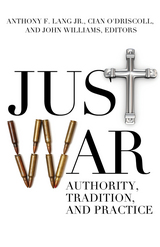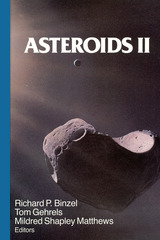
The just war tradition is central to the practice of international relations, in questions of war, peace, and the conduct of war in the contemporary world, but surprisingly few scholars have questioned the authority of the tradition as a source of moral guidance for modern statecraft. Just War: Authority, Tradition, and Practice brings together many of the most important contemporary writers on just war to consider questions of authority surrounding the just war tradition.
Authority is critical in two key senses. First, it is central to framing the ethical debate about the justice or injustice of war, raising questions about the universality of just war and the tradition’s relationship to religion, law, and democracy. Second, who has the legitimate authority to make just-war claims and declare and prosecute war? Such authority has traditionally been located in the sovereign state, but non-state and supra-state claims to legitimate authority have become increasingly important over the last twenty years as the just war tradition has been used to think about multilateral military operations, terrorism, guerrilla warfare, and sub-state violence. The chapters in this collection, organized around these two dimensions, offer a compelling reassessment of the authority issue’s centrality in how we can, do, and ought to think about war in contemporary global politics.

In this original and provocative book, Nahed Artoul Zehr explores the theological underpinnings of al-Qaeda and related Islamic movements such as ISIS. She demonstrates how this marginal narrative transformed al-Qaeda from a relatively hierarchical and regional organization to a globalized, decentralized, and diffuse system of networks. She draws connections between religious ideas and strategy in her translation and analysis of leading theoretical and tactical jihad text, The Global Islamic Resistance Call, by Mustafa abu Mus’ ab al-Suri.
Just as importantly, she questions al-Qaeda’s understanding of the Islamic tradition on the use of force, arguing that it reflects a weak understanding of this tradition. More specifically, it is al-Qaeda’s (and related groups’) break with this tradition that is key to an al-Qaeda defeat.
Simultaneously, Zehr critiques the US military and policy establishment as it attempts to offer counter-narratives to the al-Qaeda phenomenon that emphasizes “good Muslims” versus “bad Muslims” in order to embrace a “moderate” form of Islam. According to Zehr, this approach is misguided: it is beyond the US government’s purview and expertise to make such theological claims about Islam. Better, she argues, to note the counter-narratives that are coming from within the Muslim community and other nongovernment institutions interested in moving this work forward.
By refocusing our attention on al-Qaeda’s narrative and the various ways thatit is being contested, the book provides an alternate lens from which to viewal-Qaeda and the al-Qaeda phenomenon for Islamic and US foreign policy scholars and students.
READERS
Browse our collection.
PUBLISHERS
See BiblioVault's publisher services.
STUDENT SERVICES
Files for college accessibility offices.
UChicago Accessibility Resources
home | accessibility | search | about | contact us
BiblioVault ® 2001 - 2024
The University of Chicago Press









